- Home
- Robert Graves
Wife to Mr. Milton Page 6
Wife to Mr. Milton Read online
Page 6
Our gentleman continued to make pettish remarks and raise difficulties, such as that there were many lines that he would fain amend. “Why then, man, in Heaven’s name what prevents that you should amend ’em?” Mr. Lawes demanded; and he was so importunate that Mr. Tiresias at last consented, but with ill grace and the condition that his name must not appear anywhere between the covers of the pamphlet.
Presently came a sound of trumpets and an answering stir among the guests. All the lords and gentlemen uncovered themselves and rose to their feet—as we ladies did likewise—though as yet the trumpets sounded but distantly. Mr. Lawes thereupon made his excuses to our gentleman, saying that his place was with the musicians, and, thanking him heartily, hastened away. Some three minutes later the outriders and heralds and whifflers came into the garden, trumpeting and drumming the alarm, above which we could hear the hoarse cry of the country people at the gate acclaiming Their Majesties as they turned in from the public road. A gentleman of the Bedchamber observed two young men of fashion drinking tobacco under the trees, the reek of whose pipes was wafted towards him; he spurred his horse forward and snatched the pipes from their mouths very roughly, telling them that His Majesty’s soul loathed the smell of the weed; and he asked, had they been reared among the painted savages of America? They were exceedingly abashed.
Soon the main body of the progress appeared at the foot of the water, both Their Majesties on horseback, the King on a tall Flanders mare—he was reputed to be the most graceful manager of a horse in his three Kingdoms—and the Queen on a little Arab gelding that ambled as sweetly as if his legs were greased with train-oil. With them rode some extraordinary handsome proper noblemen of the Court, the chiefest among them being three resplendent Scots, the Earls of Carlisle and Kellie and the Marquis of Hamilton, all members of the Privy Council, who were together of the greatest expense in their persons of any in that age, His Majesty himself not vying with them; and some very lovely ladies, well mounted and glittering with cloth of gold and jewels almost as spendidly as the noblemen aforesaid; and in coaches behind came bishops and grave heads of Oxford Houses dressed in their robes, and members of the King’s Privy Council, of whom I remember only the Lord High Treasurer, the Earl of Portland, whose wife and daughter waited upon the Queen, being, like herself, of the old religion. The King at this time ruled wholly by means of his Privy Council, having a detestation of Parliaments; but the grand disadvantage was that, without a Parliament, money was hard to get.
When we made our reverences to Their Majesties, the King graciously permitted us to be seated; yet the lords and gentlemen, except those about his person, continued uncovered, though the sun was more than usual hot.
Being silly children, Zara and I wondered that the King wore no crown, and also that he was so low a man, being almost the lowest grown man in the garden, except for his dwarf. The Queen and he were led to rustic thrones, hung with the royal arms, and cool drinks and jellies were provided for them, and a negro boy, the first negro that ever I saw, fanned the Queen with a fan of ostrich-feathers. The King settled back into his throne with a smile and signified that the entertainment should begin.
At this a sound of gentle rippling music rises from concealed instruments. The cover of the stone urn lifts up, and out peeps a reverend old man who asks: “Whence comes this music sweet? O, what doth it portend? Etc.” Presently he climbs out with a slow labouring motion and proclaims himself to be a hermit, whose diet is acorns and beech-mast and fresh water only, on which he thrives well—(here Sir Thomas gently snuffs and giggles to himself, remembering Mr. Ivy’s notorious greed for delicate French confections)—and explains that he sleeps in this urn as a perpetual reminder to himself of our common mortality. He denies that he knows anything of what passes in the great world without, yet declares himself confident that all is well with England; for he has learned in a dream that a Gracious Prince, King Charles, now reigns and has a Queen that is worthy of his honour and love. Then he turns about and almost faints with amaze, and asks the trees and waters whether this can again be the glorious vision of his dream, etc., etc.—for there sit Their Effulgent Majesties themselves. He prostrates himself on the grass, but rising up again stumbles forward and invites them in a voice, warbling with feigned awe, to step forward a few paces, if they would see the wonders of his enchanted rock, the like of which there is “Not to be found in all Your glorious realms, From chalky Dover to chill Newfoundland, And the Barbadoes rich in sugar.” Then, receiving no positive answer, he points plainly to the house over the rock, makes another deep obeisance and goes backward until he comes again to his urn, into which he clambers, and clap! pulls down the cover again.
The King was wearied, for that morning he had played two or three sets of tennis before breakfast and the day was languid. He looked surly, and would have tarried longer on his throne; but the Queen, as we understood, chid him good-humouredly for missing his cue and told him that she would be a visitant of the rock in any event, and he might follow if he pleased. Thus she shamed him into motion, and forward they went. There was a choir of singing boys from the cathedral school of Oxford, dressed as wild birds; these piped a little song consisting of questions, to which a hidden voice, playing Echo, made apt answers. This was a short Echo, of twenty-four geometrical paces (according to what we had learned that same morning), for only single syllables were returned; yet the song was so ingeniously contrived that each syllable spoken by the Echo came as a reasonable answer to the question asked. For example, as I recall it:
Question: Where is’t that nightingales at noon we hear?
Answer: Here!
Question: And doth the drum sound, without drumstick-play?
Answer: Ay!
As the Royal pair passed by our seats we rose again. Then the Queen, who was black-eyed and swarthy and likewise of very small size, remarked to one of her Maids of Honour upon the colour of my hair, who replied that she conceived me to be of the household of Sir Thomas Gardiner, who stood next to me, and whose sister Mary had lately been recommended for Her Majesty’s service. So I was beckoned, and climbed down over the benches and stage-side, and made my curtsey before the Queen; who stroked my hair and took me lovingly by the shoulders and called me a belle mignonne and praised me to the King. He, however, nodded absently and paid very slight heed. But at least I was among the first, after Their Majesties’ selves, to enter into the famous grotto of the rock.
I was not abashed to be so handled by the Queen, for many other great ladies coming to our house had made much of me, in rank from marchioness downwards; and I had been taught a little French, so that I held my own with “Oui, Madame la Reine” and “Je ne le sçais pas, Madame le Reine,” and pleased her mightily when I told her I was called Marie after her. She cried that she would willingly have stood godmother to me, had I been of the true religion; but I told her in halting French that my father, like a loyal Englishman, owed his allegiance in religion not to the Pope, but to her husband. She pouted at me and shook her finger, and laughed merrily and whispered loudly in my ear that the King was a greater tyrant, and more obstinate, than any Pope; after which she grimaced at the King and laughed again. The King observed nothing of this raillery, though she plainly intended that he should, for he was speaking gravely with the Earl of Kellie about some obscure sickness that his falcons had taken in the Royal mews at Windsor Castle.
The Queen was delighted with the pleasant coolness of the grotto, but said that, looking about her, she saw nothing better to rest her eye upon than only a tall, wet rock. This rock was made up of large, craggy, moss-covered stones with great cavities between them, out of which water flowed with a brisk motion, dashing against the rocks below. Suddenly a music sounded from beneath our feet, which was a signal for the keeper of the waterworks, in one of the closets overhead, to turn on the brass cocks, one by one. Then, in the front of the rock, first rose up a chequer-hedge of water, from little pipes set at a slant, and next two stout side-columns of water, making an arc
h over the face of the rock, and then a third, round, upright column which rose to the ceiling above us and returned not again, but was received there into a hidden pipe. Then up sprang two little dancing jets of rose-coloured water, each tossing up a golden ball and holding it suspended at the height of about three feet.
The Queen reached forward and caught one of the balls, which was of hollow gold, and opened it and discovered a little French compliment inside and a marchpane sweetmeat, which she smelt of, and then popped into my mouth, where it tasted very good. She prompted the King to take his ball too, and when it was opened he found in it a little portrait, painted on ivory, of the Queen standing before these very artificial waters, with another written compliment. The discovery gave him joy, and he pressed the portrait to his lips. After this act, a water-pipe was made to warble like a nightingale, as the Echo had promised, and another rumbled dub-a-dub like a drum; and then, with due warning given, a whole canopy of water, like a great sheet of glass, was let down before the rock, and behind this canopy many other jets of water crossed and arched and seemed to interlace, so that the Queen clapped her hand for delight. There were lighted candles set on a mossy ledge of the rock, which continued burning all the while, not overwhelmed by the water, nor even guttering.
Next, Esquire Bushell, waiting upon the King, whispered into the Marquis of Hamilton’s ear, who grinned and went to His Majesty and conferred merrily with him; and presently a gentleman was sent out to fetch the King’s Fool, by name Archie Armstrong.
This Archie had been a Border rogue and a sheep-thief before he became licensed jester at King James’s Scottish court: he was of a sly and peevish humour, but his cap and bells protected him from harm. He spoke a very thick English, little of which I could understand. He came running down to the grotto, tripping over his shoes constantly and falling flat along the ground, which simple jest brought each time a new roar of laughter from the company. Archie had a roasted chicken in his hand at which he nibbled greedily, and he astonished the company by snapping off the drumsticks and munching them as if they were sugar-sticks—which indeed they were, painted over with burned sugar.
Now he sits on the step outside the grotto and bawls some old corky jest at the company, at which all the Scots laugh lustily, and then the King asks: “Archie, thou girt thief, wast ever baptized?”
“Och, aye, Cousin,” says he. “Aince and thrice, as I ken verra weel. Aince by the minister, aince by ane auld Devil, and aince by a plooky-faced wife of Gallow-gate—she cried ‘Gardy-loo’ from her window, but she cried tardily, having voided the full nicht-pot upon my hied.”
“Come in, then, Archie, for a fourth baptism,” says my Lord of Hamilton.
“Nae nearer than the doorway,” answers wary Archie; but that was near enough, for at a signal given by the Marquis down came a great curtain of water from the lintel, and, when Archie turned to run out into the grove, down came a second and worse fall of water, which cut his retreat. Then the whole company made merry at his expense, for he was drenched to the very skin, the Scottish lords holding their sides for laughter and coming forward to mock at him.
Then Archie goes down on all fours and barks like a water-dog and shakes his ears, the bells of his cap jangling, and comes barking through the doorway and springs clean through the fall of water, as I have seen dogs at St. Giles’s Fair at Oxford leap through paper-hoops, and then barks again and shakes his sides. Then he leaps upon the Earl of Kellie (standing a little in advance of the others) and wets my lord’s fine crimson doublet with his paws, and makes to lick his face, and then again shakes himself, and barks, and would leap upon the Marquis of Hamilton, who avoids him and flees upstairs, Archie scampering at his heels.
Then the King says, with a half-smile, stammering a little, but very aptly: “I read but yesterday in Gervase Markham’s excellent work on the art of fowling, which he titles Hunger’s Prevention: ‘Not any among us is so simple that he cannot say, when he seeth him, “This is a Water-Dog, or a dog bred for the water.”’”
The name Hunger’s Prevention was straightway taken up by Esquire Bushell, who informed Their Majesties with a deep obeisance that they might ascend the stairs at their pleasure, for a banquet was spread for them in the room above. The Queen then kissed me good-bye and packed me off to Sir Thomas; and the great company, in exact precedence of rank, ascended the stairs to the banquet; upon which the lesser company entered the grotto and marvelled at the water, and now and then a visitant of the humbler sort would be cruelly soused in the doorway as Archie had been.
We were well entertained with meat and drink in the hall of the great house, with two hundred other guests, where it was announced to us that the Queen had graciously given her name to the rock and fountain.3 We watched for the King to come out from the banqueting-room, for there were waiting for him, under guard of a beadle, some half-score of people of the parish suffering from scrofula; whom, when he learned that they were tenants of his host, the King consented to touch upon their rough places, with each time “Be thou clean, for Christ’s sake!” They raised eyes of thankfulness, crying, “Heaven bless and reward Your Majesty!” which made me weep for the poor creatures and my own skin itched for sympathy.
A little while after we rode homeward in the coach, and the dust on the road rose in clouds from the many horses and coaches passing, so that I was nearly choked; then we turned off the road until the rout had quite passed and the dust was somewhat laid. We did not see the gentleman again whom Mr. Lawes called “John,” but who called himself “Tiresias.”
I was asked by all my kindred, and by every one who came to our house for weeks after, how had the King looked, how had the Queen looked, what words had she spoken to me, how had I answered, and many more questions, and Sir Thomas praised me to my father and mother, saying that I had quitted myself like a true Powell.
When I looked back upon that day from a distance of near five years, and wrote of it at leisure in my vellum book, I used less than two pages to tell of the water-works and of Their Majesties, with a few lines only for the King, but three whole pages to tell of the strange gentleman, for even after so long a lapse of time his words beat in my ears still. I wrote how angry a man he was, and how like an avenging angel’s his face—I meant the painted angel in the window at our church of St. Nicholas, who carried a sword in his hand—and I resolved when I saw my brother James again to ask him what he knew of this name “Tiresias,” hoping perhaps to unriddle the gentleman’s story. As I wrote, I bethought myself of what our curate, the Rev. John Fulker, had told us in a sermon: how a woman’s hair should be covered, and why? For fear of the angels.
“That jumps well with what I remember,” said I to myself, “for at Woodstock Town End this angel-faced Tiresias eyed my hair (which I wore naked of any hat or kerchief) with a certain hard fury as though it were of offence to him, and sleeked his own with one hand.”
CHAPTER FOUR
Life at Forest Hill
Omitting many childish things, of slight account—how I had the measles, very bad, at four years old, and how I was in my father’s coach when it was caught in a snowdrift in the great snow of 1634 and remained in it all night and part of the next day—I will here briefly recount the manner of our life at Forest Hill before the storm of war broke upon our heads.
First, as to sport. We kept always a brace of strong Irish greyhounds, and a leash of hawks, and four or five good horses for riding. Hares there were in plenty on the Manor Land, especially in the fields this side of Minchin Court and across the pastures to Red Hill; together with partridges and other game birds. The Tyrrells, our neighbours, who had the great house at Shotover, gave us leave to hunt buck in the Royal Forest; yet this leave was for ourselves only, not for any guests of ours, and an under-ranger must needs always accompany us, which was a tedious condition. When Sir Timothy Tyrrell was Master of Buckhounds to Prince Henry (the well-beloved brother of King Charles, who would have been King had he not died untimely), one day in the Forest they
ran down a fine stag. Sir Timothy held the beast’s head for the Prince to dispatch it with his hunting dagger, but it struggled and tossed its antlers, and the Prince, using his dagger carelessly, cut a nerve in Sir Timothy’s arm so that he never afterwards had the use of it. In reparation Sir Timothy was granted by Letters Patent the rangership of the Forest, besides the bailiwick which was hereditary to him. The rangership was an office that called for vigilance beyond the ordinary, because many young gentlemen from the University, wearying of a constant diet of river fish, stock-fish and lean mutton, dared make free with the Forest and would carry venison out of it, though it went very ill with them if the rangers catched them.
At Forest Hill we had no common right of pasture in the Forest, yet we drove our herds of pigs to fatten on mast of oak and beech, and paid to the Tyrrells twenty or thirty shillings per annum for the right. Every pig must be ringed to forbid his rooting in the ground, and a pig found unringed was forfeited to the Ranger, because of the danger to a huntsman whose horse set its foot in a hole rooted by a pig. Beside the buck in Shotover there were badgers and foxes and wild cats: only the wild cats were not chased, because they preyed upon rabbits.
I went hunting, but seldom in the Forest, and never but once in company with the Tyrrells, who were not pleased with women at the hunt. They said that women and priests brought no luck with them; and their spite was confirmed one day when they heard that the Queen had unluckily transfixed, with an arrow from her cross-bow, the King’s favourite hound. As for the priests, if ever my brother James held his bow a little awkwardly, one of the young Tyrrells would mock at him and cry, “An Archbishop of Canterbury! A proper Archbishop!” A sad tale hangs on that. In Hampshire, a year or two before I was born, Archbishop Abbot of Canterbury, being invited to shoot buck with the Lord Zouch in his forest, excused himself with a plea that he had little skill with the cross-bow; yet he was over-persuaded, and the first arrow that he let fly struck into the body of a keeper, who died of the wound. Here was a knotty problem for the professors of Canon Law, whether a homicide could continue to enjoy his archbishopric; and though King James acquitted him under the Broad Seal, and restored him to the full exercise of his office (from which he had been suspended until the case should be judged) the misfortune hung so heavy upon his mind that he was seldom seen at Court thereafter, and on the first Tuesday of every month he kept a solemn day of fast and humiliation.

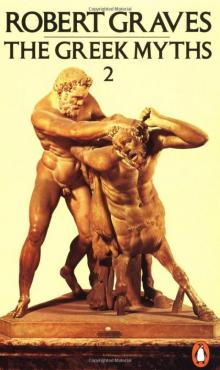 The Greek Myths, Volume2
The Greek Myths, Volume2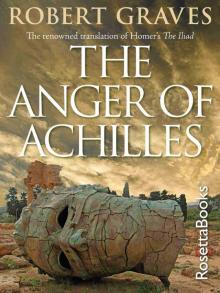 The Anger of Achilles: Homer's Iliad
The Anger of Achilles: Homer's Iliad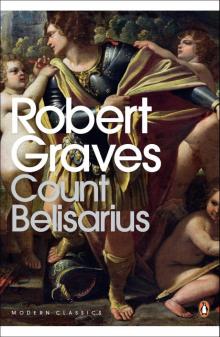 Count Belisarius
Count Belisarius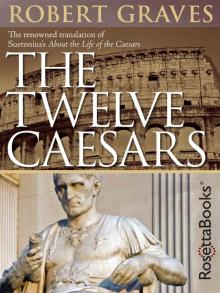 The Twelve Caesars
The Twelve Caesars Complete Poems 3 (Robert Graves Programme)
Complete Poems 3 (Robert Graves Programme)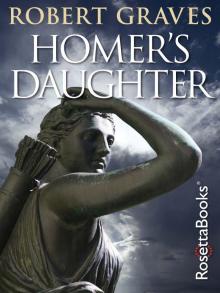 Homer's Daughter
Homer's Daughter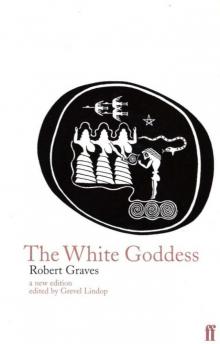 The White Goddess
The White Goddess Goodbye to All That
Goodbye to All That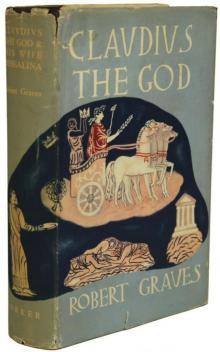 Claudius the God and His Wife Messalina
Claudius the God and His Wife Messalina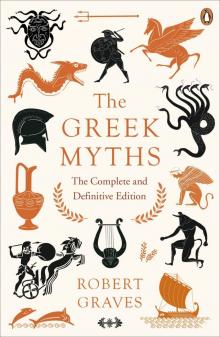 The Greek Myths
The Greek Myths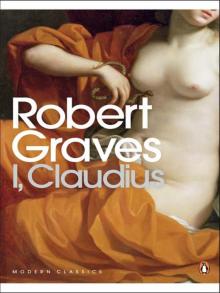 I, Claudius
I, Claudius The Islands of Unwisdom
The Islands of Unwisdom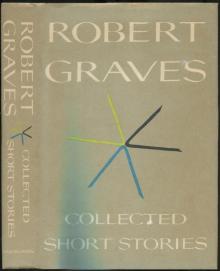 Complete Short Stories
Complete Short Stories The Golden Fleece
The Golden Fleece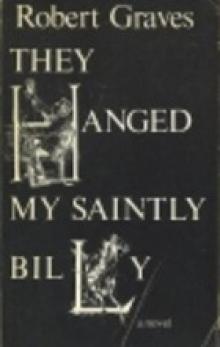 They Hanged My Saintly Billy
They Hanged My Saintly Billy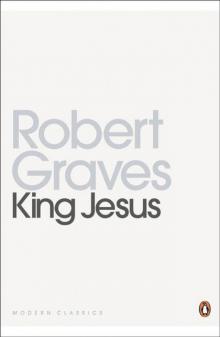 King Jesus
King Jesus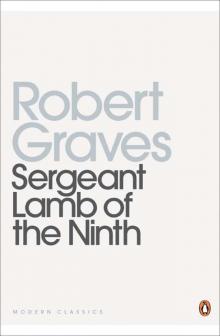 Sergeant Lamb's America
Sergeant Lamb's America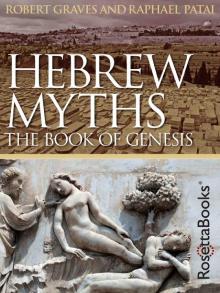 Hebrew Myths: The Book of Genesis
Hebrew Myths: The Book of Genesis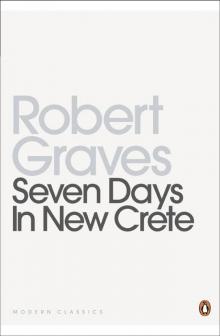 Seven Days in New Crete
Seven Days in New Crete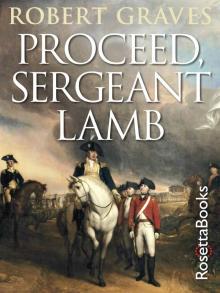 Proceed, Sergeant Lamb
Proceed, Sergeant Lamb Claudius the God
Claudius the God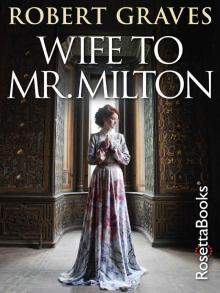 Wife to Mr. Milton
Wife to Mr. Milton The Complete Poems
The Complete Poems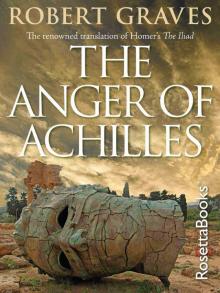 The Anger of Achilles
The Anger of Achilles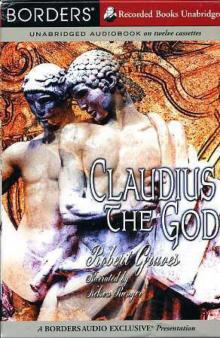 Claudius the God c-2
Claudius the God c-2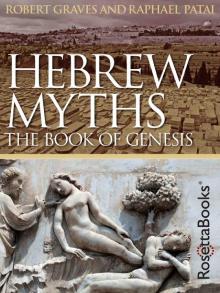 Hebrew Myths
Hebrew Myths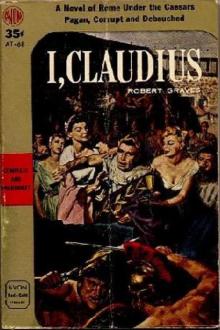 I, Claudius c-1
I, Claudius c-1 The Greek Myths, Volume 1
The Greek Myths, Volume 1